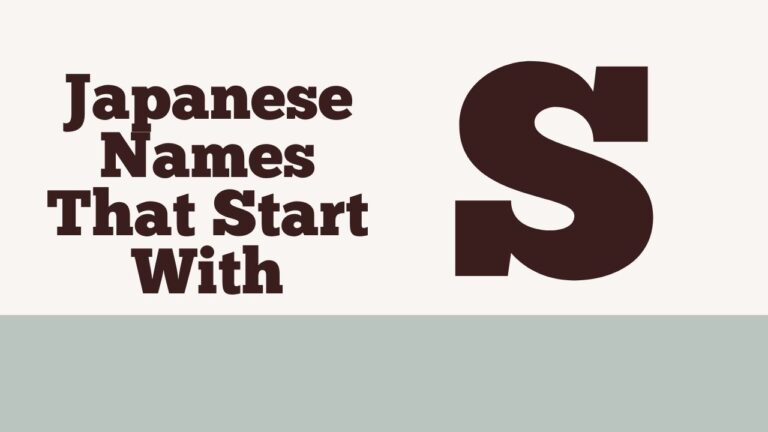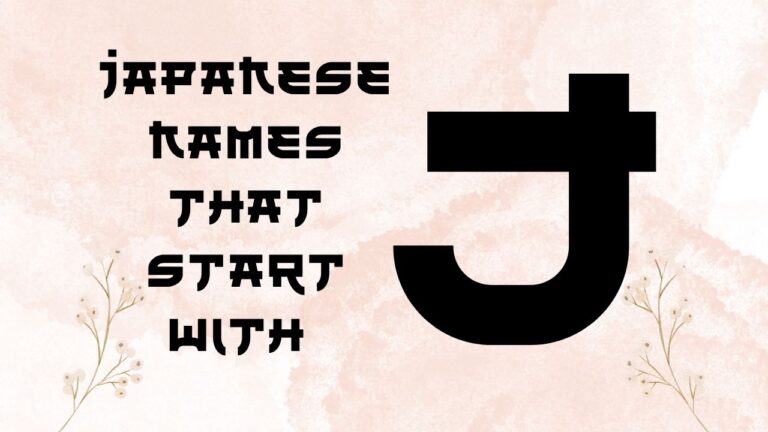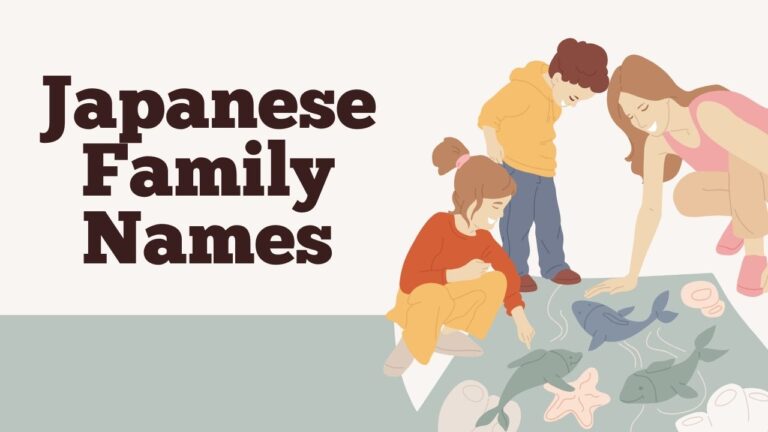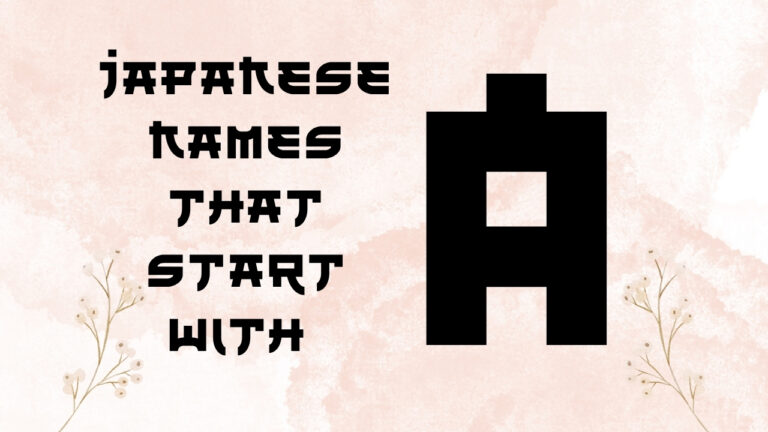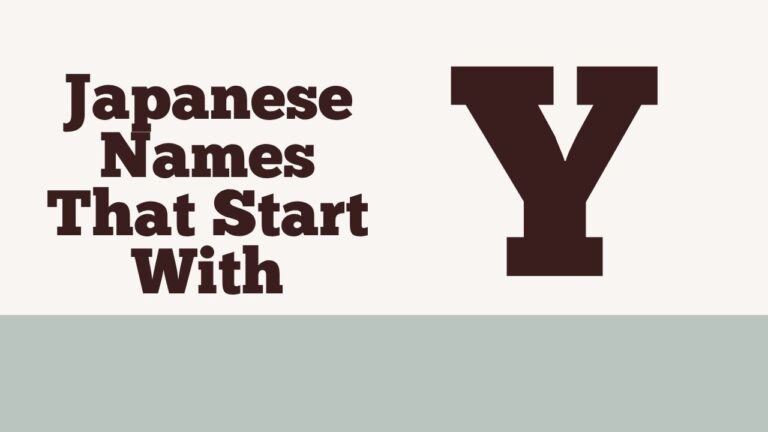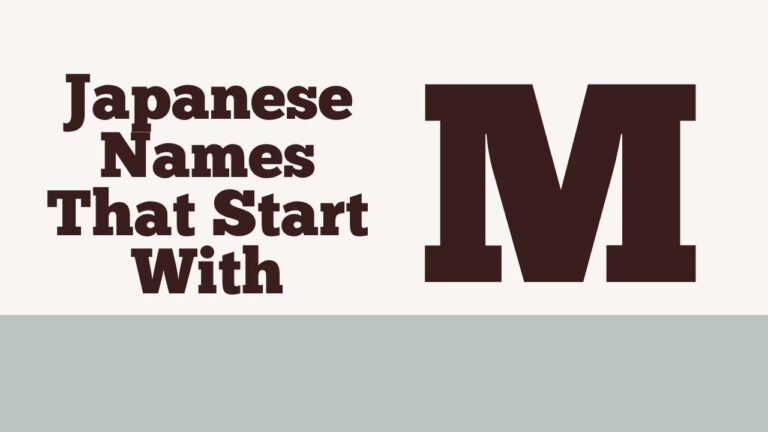100+ old Japanese names
Old Japanese names carry deep meanings, history, and timeless charm that continue to inspire people around the world. Many parents and history lovers are drawn to Old Japanese names male and female that reflect tradition and cultural elegance. Especially fascinating are Old Japanese names 1845, which remind us of a unique period in Japan’s past.
Similarly, Old Japanese names 1800s showcase the strength, honor, and graceful style rooted in Japan’s rich heritage. In this article, we will explore classic name ideas that highlight the beauty of Japan’s ancient naming traditions.
Also Read:115+ japanese names meaning star
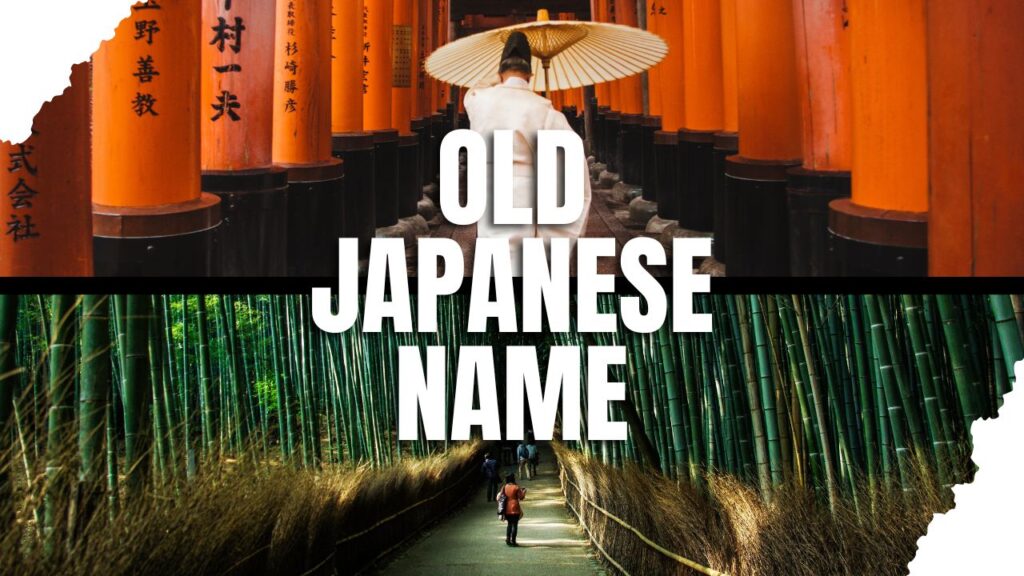
old Japanese names male
- Haruki (春樹) – Shining sun tree
- Takeshi (武志) – Brave warrior
- Katsuro (勝郎) – Victorious son
- Masaru (勝) – Victory
- Hajime (一) – Beginning or firstborn
- Souta (颯太) – Swift and strong
- Shigeru (茂) – Luxuriant or growing
- Rikuto (陸翔) – Land and flight
- Isamu (勇) – Courage or bravery
- Gorou (五郎) – Fifth son
- Jirou (次郎) – Second son
- Saburou (三郎) – Third son
- Kentarou (健太郎) – Healthy strong son
- Kazuo (一雄) – Harmonious man
- Shouhei (翔平) – Flying peace
- Tadashi (正) – Loyal, righteous
- Ryouma (龍馬) – Dragon horse
- Naoki (直樹) – Honest tree
- Yuusuke (祐介) – Helpful, assisting
- Makoto (誠) – Sincerity or truth
- Noboru (昇) – To ascend or rise
- Eiji (英二) – Excellent second son
- Shouji (昌二) – Prosperous second son
- Fumio (文雄) – Scholarly man
- Toru (徹) – Penetrating, clear
old Japanese names female
- Chiyo (千代) – Thousand generations, eternal
- Suzu (鈴) – Bell, tinkling sound
- Kiku (菊) – Chrysanthemum flower
- Hatsu (初) – First or beginning
- Tama (玉) – Jewel or precious stone
- Yuki (雪) – Snow or happiness
- Sanae (早苗) – Young rice plant
- Fumi (文) – Literature, writing
- Kayo (佳代) – Beautiful generation
- Masae (正恵) – Blessed with righteousness
- Sae (冴恵) – Clear blessing
- Yoshie (良江) – Good river or good bay
- Tsuru (鶴) – Crane, symbol of longevity
- Haru (春) – Spring season
- Tome (留女) – Long-lasting girl
- Sumi (澄美) – Pure beauty
- Shizu (静) – Calm, peaceful
- Natsu (夏) – Summer
- Kinu (絹) – Silk
- Ichi (市) – Market, also used for firstborn daughter
- Mitsu (光) – Light or shine
- Oume (梅) – Plum blossom
- Ritsu (律) – Law or rhythm
- Yae (八重) – Double layers, rich beauty
- Hama (浜) – Beach or seaside
old Japanese names unisex
- Ren (蓮) – Lotus flower
- Hikaru (光) – Light or radiance
- Nao (直) – Honest, upright
- Aoi (葵) – Hollyhock or blue-green
- Kaoru (薫) – Fragrance or aroma
- Minori (実り) – Fruitfulness, harvest
- Sora (空) – Sky
- Shin (真) – True or genuine
- Itsuki (樹) – Tree or timber
- Michiru (満) – Fullness, complete
- Kou (光) – Light, brilliance
- Masaki (正樹) – Upright tree
- Rin (凛) – Dignified, cold clarity
- Yuuki (勇気) – Courage
- Makoto (誠) – Truth, sincerity
- Seiji (誠司) – True governance
- Haruaki (陽明) – Bright sunlight
- Shou (翔) – Fly, soar
- Rei (礼) – Gratitude, respect
- Suzuki (涼樹) – Cool tree
- Hinata (日向) – Sunny place
- Kiyomi (清美) – Pure beauty
- Misao (操) – Honor, fidelity
- Chika (千佳) – Thousand blessings
- Tsubasa (翼) – Wings
unique old Japanese names
- Soutarou (宗太郎) – Religious eldest son
- Umeko (梅子) – Plum blossom child
- Genjirou (源次郎) – Second son of the Genji clan
- Tetsuo (鉄雄) – Iron man
- Yoshiko (良子) – Good and virtuous child
- Kichirou (吉郎) – Lucky son
- Otome (乙女) – Maiden or young lady
- Saburoumaru (三郎丸) – Third son with honor
- Tane (種) – Seed, origin
- Ginjirou (銀次郎) – Silver second son
- Oharu (お春) – Honorable spring
- Bunzou (文蔵) – Literary treasure
- Seki (関) – Barrier, connection
- Senzou (仙蔵) – Hermit’s treasure
- Orino (織乃) – Weaving child
- Kinkichi (金吉) – Golden fortune
- Okichi (お吉) – Honorable fortune
- Denjirou (伝次郎) – Second son of tradition
- Nobue (信恵) – Faithful blessing
- Hatsutarou (初太郎) – First-born eldest son
- Ineko (稲子) – Child of rice, harvest
- Tokuzou (徳蔵) – Treasure of virtue
- Rikiya (力也) – Strong one
- Ennosuke (猿之助) – Helper of the monkeys (common in Kabuki tradition)
- Yasuko (安子) – Peaceful child
Conclusion
Old Japanese names hold deep cultural significance, reflecting the beauty, history, and values of Japan’s past. Whether for boys, girls, or unisex, these names carry meanings tied to nature, strength, tradition, and family heritage.
Exploring these timeless names offers insight into Japan’s rich history and provides inspiration for anyone seeking meaningful, classic name choices that stand apart even today.
FAQs
- Why are old Japanese names still popular today?
Old Japanese names often reflect tradition, strength, and beauty, making them appealing for those who value cultural heritage and timeless meanings. - Do old Japanese names have specific meanings tied to nature or virtues?
Yes, many old Japanese names are inspired by nature, seasons, virtues like honesty or courage, and symbols of prosperity or longevity. - Were certain names only used by noble families in old Japan?
Some names, especially those linked to samurai families or ancient clans, were historically reserved for nobility or warriors, carrying special prestige. - Can old Japanese names be used in modern Japan?
Absolutely, many old names remain in use today, though some are considered rare or traditional, making them unique in contemporary settings. - Are old Japanese names gender-neutral?
While many old names were traditionally gendered, some names have always been used for both boys and girls, especially those connected to nature or virtues. - How were names chosen in old Japan?
Names were often chosen based on family lineage, desired qualities for the child, historical events, or auspicious symbols like trees, animals, or seasons. - Do old Japanese names appear in historical literature or folklore?
Yes, many names are found in ancient Japanese stories, poems, and folklore, reflecting the cultural importance of names throughout history.

